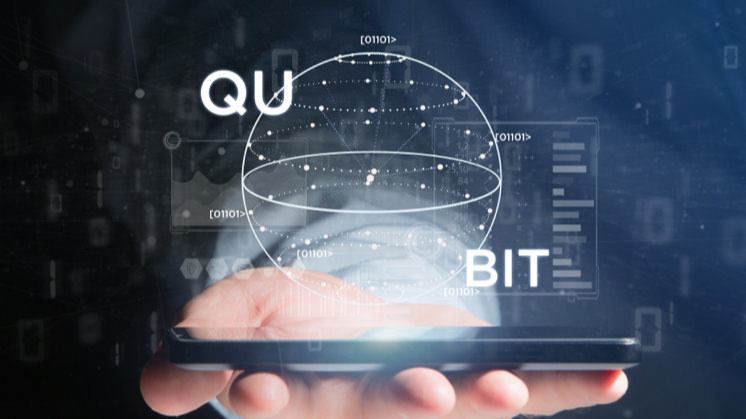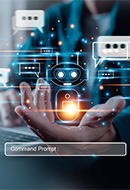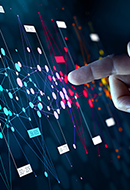All about quantum computing
Quantum computing and supercomputers will revolutionise technology
We live in the age of technology, but there's still plenty to come. In recent years, large companies have been taking small — but important steps — forward in quantum computing, which looks set to revolutionise the world as we know it. The following selection of potential applications will impact everything from mobility to healthcare.

In a binary world consisting of ones and zeros, quantum computers would be like the Albert Einstein of computing, with extraordinary electronic brains capable of completing tasks that would be almost impossible for ordinary computers to handle. The multinational IBM will be the first to market this wondrous technology with the Q System One, a 3x3-metre glass cube with 20 qubits presented in 2019 that will be made available to businesses and researchers.
The multinational IBM will be the first to market one of these technological marvels, the Q System One, a glass cube measuring approximately 3 x 3 metres and containing 20 qubits, which was unveiled in 2019 and will be available for business and research purposes. But what is this technology exactly and what are its applications? Let’s take a look at the concepts, uses and evolution of this key technology in the computing revolution.
What is quantum computing?
This branch of computer science is based on the principles of the superposition of matter and quantum entanglement and uses a different computation method from the traditional one. In theory, it would be able to store many more states per unit of information and operate with much more efficient algorithms at the numerical level, such as Shor's or quantum annealing.
This new generation of supercomputers uses knowledge of quantum mechanics — the area of physics that studies atomic and subatomic particles — to overcome the limitations of classic computing. Although in practice, quantum computing faces evident problems regarding scalability and incoherence, it makes it possible to perform multiple simultaneous operations and eliminates the tunnel effect that limits current nanometric scale programming.
What is a qubit?
A qubit (or quantum bit) is the basic unit of information in a quantum computer, equivalent to the bit in classical computing. Unlike a traditional bit, which can only be in one of two states—0 or 1—a qubit can be in a superposition of both states at the same time, thanks to quantum mechanics. This means that a qubit can simultaneously represent 0 and 1, allowing quantum computers to process much more information at the same time. Qubits can also be entangled, so that the state of one depends on the state of the other, further enhancing the computing power of quantum systems.
This multiplicity of states makes it possible for a quantum computer with just 30 qubits, for example, to perform 10 billion floating-point operations per second, which is about 5.8 billion more than the most powerful PlayStation video game console on the market. One of the main differences with classical physics is that its results are probabilistic rather than deterministic.

What is Artificial Intelligence?
AI is set to bring about a revolution on a par with the Internet.

History of artificial intelligence
Get to know the almost century-old set of conceptions behind artificial intelligence.

AI Algorithms
Get an insight into the diversity of algorithms that make up AI.
Differences between quantum and traditional computing
Quantum computing and traditional computing are two parallel worlds with some similarities and numerous differences between them, such as the use of qubits versus bits. Here are some of the most relevant ones:
The quantum leap in computing
Source: TechTarget.
Operating conditions of a quantum computer
These computers are extremely sensitive and require very specific pressure and temperature conditions and insulation to operate correctly. When these machines interact with external particles, measurement errors and the erasure of state overlaps occur, which is why they are sealed and have to be operated using conventional computers.
Quantum computers must have almost no atmospheric pressure, an ambient temperature close to absolute zero (-273°C) and insulation from the earth's magnetic field to prevent the atoms from moving, colliding with each other, or interacting with the environment. In addition, these systems only operate for very short intervals of time, so that the information becomes damaged and cannot be stored, making it even more difficult to recover the data.
Main uses of quantum computing
Quantum computing offers new opportunities for solving problems that are beyond the capabilities of classical computing resources. These possibilities can be grouped into four areas:
- Simulation. With improvements in R&D&I simulation in medicine, chemistry and the agri-food industry; in complex financial models; in weather forecasting; and in the science and design of new materials.
- Artificial intelligence. Quantum computing enables the execution of advanced machine learning models or large language models, among others.
- Optimisation. This technology enables better management and measurement of, for example, traffic and smart cities, real-time supply chains, and distribution and telecommunications networks.
- Cryptography. With the evolution of data encryption methods and new secure transmission methods.
All in all, some of the main applications of classical computing are:
What's the current state of quantum computing?
Quantum computing is at a technological turning point. This status can be measured using the QTRL (Quantum Technology Readiness Level), a scale that measures the maturity level of quantum computing technologies. The scale has nine levels, with QTRL1 the lowest level of technological readiness and QTRL9 the highest. Most quantum computing technologies today are at intermediate levels on the QTRL scale, generally between QTRL3 and QTRL5.
The US, China and Europe are at the forefront of quantum computing development in terms of both technology and investment. They are followed by Australia, Japan and Singapore which are also important hubs in the drive towards quantum computing. Among the main global players, the following stand out:
- Google. Google's latest quantum chip, Willow, with 105 qubits, has proven capable of significantly reducing errors as it scales. Its core technology is quantum annealing.
- IBM. Since Quantum System One, it has focused on quantum computers for commercial purposes, such as the IBM Quantum System Two, located in Yorktown Heights, New York, designed to be modular and flexible. The modular approach allows for scalability and adaptability, critical aspects for the evolution of quantum computing infrastructure.
Quantum computing initiatives Iberdrola is involved in
At Iberdrola, we are exploring the potential of quantum computing to transform the energy management of the future, especially in the field of smart grids. In partnership with the Guipúzcoa-based company Multiverse Computing External link, opens in new window. , we are working on developing quantum algorithms applied to the optimisation of power flows in the electricity grid, which will allow for greater efficiency in increasingly complex scenarios due to the integration of renewables.
External link, opens in new window. , we are working on developing quantum algorithms applied to the optimisation of power flows in the electricity grid, which will allow for greater efficiency in increasingly complex scenarios due to the integration of renewables.
In addition, we are participating in the EMIE (Efficiency of LLM Models for Strategic Industries) project, an initiative within the Hazitek programme (2024–2026) also led by Multiverse, which aims to generate reusable and scalable knowledge assets —such as algorithms, formulations and patents— based on hybrid quantum computing, applicable to real use cases in energy distribution. This project seeks to identify and address the major challenges of optimisation, information processing and simulation presented by smart grids using quantum technologies, paving the way for industrial applications with business value in the coming years.

























